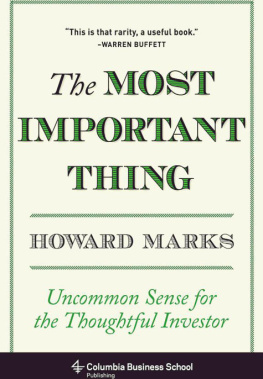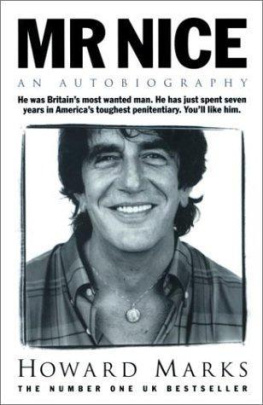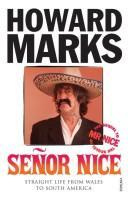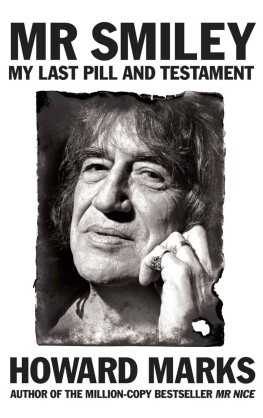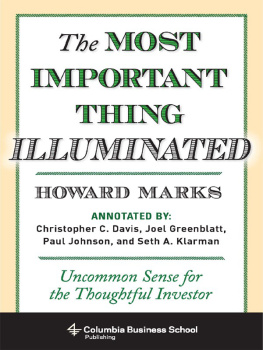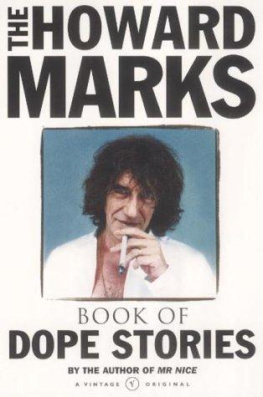Howard Marks - The Most Important Thing Illuminated
Here you can read online Howard Marks - The Most Important Thing Illuminated full text of the book (entire story) in english for free. Download pdf and epub, get meaning, cover and reviews about this ebook. year: 0, genre: Science / Business. Description of the work, (preface) as well as reviews are available. Best literature library LitArk.com created for fans of good reading and offers a wide selection of genres:
Romance novel
Science fiction
Adventure
Detective
Science
History
Home and family
Prose
Art
Politics
Computer
Non-fiction
Religion
Business
Children
Humor
Choose a favorite category and find really read worthwhile books. Enjoy immersion in the world of imagination, feel the emotions of the characters or learn something new for yourself, make an fascinating discovery.
- Book:The Most Important Thing Illuminated
- Author:
- Genre:
- Year:0
- Rating:4 / 5
- Favourites:Add to favourites
- Your mark:
- 80
- 1
- 2
- 3
- 4
- 5
The Most Important Thing Illuminated: summary, description and annotation
We offer to read an annotation, description, summary or preface (depends on what the author of the book "The Most Important Thing Illuminated" wrote himself). If you haven't found the necessary information about the book — write in the comments, we will try to find it.
The Most Important Thing Illuminated — read online for free the complete book (whole text) full work
Below is the text of the book, divided by pages. System saving the place of the last page read, allows you to conveniently read the book "The Most Important Thing Illuminated" online for free, without having to search again every time where you left off. Put a bookmark, and you can go to the page where you finished reading at any time.
Font size:
Interval:
Bookmark:

Columbia University Press Publishers Since 1893
New York Chichester, West Sussex Copyright 2011 Columbia University Press All rights reserved
Library of Congress Cataloging-in-Publication Data Marks, Howard, 1946
The most important thing : uncommon sense for thoughtful investors / Howard Marks. p. cm.
ISBN 978-0-231-15368-3 (cloth : alk. paper)ISBN 978-0-231-52709-5 (ebook)
HG4521.M3216 2011 332.6dc22 2011001973
Columbia University Press books are printed on permanent and durable acid-free paper.
This book is printed on paper with recycled content. Printed in the United States of America
References to Internet Web sites (URLs) were accurate at the time of writing. Neither the author nor Columbia University Press is responsible for URLs that may have expired or changed since the manuscript was prepared.
For Nancy, Jane and Andrew With All My LoveTHE MOST IMPORTANT THING IS
1 SecondLevel Thinking 1
2 Understanding Market Efficiency (and Its Limitations) 7
3 Value 16
4 The Relationship Between Price and Value 24
5 Understanding Risk 31
6 Recognizing Risk 46
7 Controlling Risk 57
8 Being Attentive to Cycles 67
viii CONTENTS
9 Awareness of the Pendulum 73
10 Combating Negative Influences 80
11 Contrarianism 91
12 Finding Bargains 100
13 Patient Opportunism 107
14 Knowing What You Dont Know 116
15 Having a Sense for Where We Stand 124
16 Appreciating the Role of Luck 133
17 Investing Defensively 141
18 Avoiding Pitfalls 153
19 Adding Value 166 20 Pulling It All Together 173
For the last twenty years Ive been writing occasional memos to my clients first at Trust Company of the West and then at Oaktree Capital Management, the company I cofounded in 1995. I use the memos to set forth my investment philosophy, explain the workings of finance and provide my take on recent events. Those memos form the core of this book, and you will find passages from many of them in the pages that follow, for I believe their lessons apply as well today as they did when they were written. For inclusion here Ive made some minor changes, primarily to make their message clearer.
What, exactly, is the most important thing? In July 2003, I wrote a memo with that title that pulled together the elements I felt were essential for investment success. Heres how it began: As I meet with clients and prospects, I repeatedly hear myself say, The most important thing is X. And then ten minutes later its, The most important thing is Y. And then Z, and so on. All told, the memo ended up discussing eighteen most important things.
Since that original memo, Ive made a few adjustments in the things I consider the most important, but the fundamental notion is unchanged: theyre all important. Successful investing requires thoughtful attention to many separate aspects, all at the same time. Omit any one and the result is likely to be less than satisfactory. That is why I have built this book around
x INTRODUCTIONthe idea of the most important thingseach is a brick in what I hope will be a solid wall, and none is dispensable.
I didnt set out to write a manual for investing. Rather, this book is a statement of my investment philosophy. I consider it my creed, and in the course of my investing career it has served like a religion. These are the things I believe in, the guideposts that keep me on track. The messages I deliver are the ones I consider the most lasting. Im confident their relevance will extend beyond today.
You wont find a how-to book here. Theres no surefire recipe for investment success. No step-by- step instructions. No valuation formulas containing mathematical constants or fixed ratiosin fact, very few numbers. Just a way to think that might help you make good decisions and, perhaps more important, avoid the pitfalls that ensnare so many.
Its not my goal to simplify the act of investing. In fact, the thing I most want to make clear is just how complex it is. Those who try to simplify investing do their audience a great disservice. Im going to stick to general thoughts on return, risk and process; any time I discuss specific asset classes and tactics, I do so only to illustrate my points.
A word about the organization of the book. I mentioned above that successful investing involves thoughtful attention to many areas simultaneously. If it were somehow possible to do so, I would discuss all of them at once. But unfortunately the limitations of language force me to take one topic at a time. Thus I begin with a discussion of the market environment in which investing takes place, to establish the playing field. Then I go on to discuss investors themselves, the elements that affect their investment success or lack of it, and the things they should do to improve their chances. The final chapters are an attempt to pull together both groups of ideas into a summation. Because my philosophy is of a piece, however, some ideas are relevant to more than one chapter; please bear with me if you sense repetition.
I hope youll find this books contents novel, thought provoking and perhaps even controversial. If anyone tells me, I so enjoyed your book; it bore out everything Ive ever read, Ill feel I failed. Its my goal to share ideas and ways of thinking about investment matters that you havent come across before. Heaven for me would be seven little words: I never thought of it that way.
I nparticular, youllfind I spend more time discussing risk and how to limit it than how to achieve investment returns. To me, risk is the most interesting, challenging and essential aspect of investing.
INTRODUCTION xiWhen potential clients want to understand what makes Oaktree tick, their number one question is usually some variation on What have been the keys to your success? My answer is simple: an effective investment philosophy, developed and honed over more than four decades and implemented conscientiously by highly skilled individuals who share culture and values.
Where does an investment philosophy come from? The one thing Im sure of is that no one arrives on the doorstep of an investment career with his or her philosophy fully formed. A philosophy has to be the sum of many ideas accumulated over a long period of time from a variety of sources. One cannot develop an effective philosophy without having been exposed to lifes lessons. In my life Ive been quite fortunate in terms of both rich experiences and powerful lessons.
The time I spent at two great business schools provided a very effective and provocative combination: nuts-and-bolts and qualitative instruction in the pre-theory days of my undergraduate education at Wharton, and a theoretical, quantitative education at the Graduate School of Business of the University of Chicago. Its not the specific facts or processes I learned that mattered most, but being exposed to the two main schools of investment thought and having to ponder how to reconcile and synthesize them into my own approach.
Importantly, a philosophy like mine comes from going through life with your eyes open. You must be aware of whats taking place in the world and of what results those events lead to. Only in this way can you put the lessons to work when similar circumstances materialize again. Failing to do this more than anything else is what dooms most investors to being victimized repeatedly by cycles of boom and bust.
I like to say, Experience is what you got when you didnt get what you wanted. Good times teach only bad lessons: that investing is easy, that you know its secrets, and that you neednt worry about risk. The most valuable lessons are learned in tough times. In that sense, Ive been fortunate to have lived through some doozies: the Arab oil embargo, stagflation, Nifty Fifty stock collapse and death of equities of the 1970s; Black Monday in 1987, when the Dow Jones Industrial Index lost 22.6 percent of its value in one day; the 1994 spike in interest rates that put rate-sensitive debt instruments into freefall; the emerging market crisis, Russian default and meltdown of Long-Term Capital Management in 1998; the bursting of the
Next pageFont size:
Interval:
Bookmark:
Similar books «The Most Important Thing Illuminated»
Look at similar books to The Most Important Thing Illuminated. We have selected literature similar in name and meaning in the hope of providing readers with more options to find new, interesting, not yet read works.
Discussion, reviews of the book The Most Important Thing Illuminated and just readers' own opinions. Leave your comments, write what you think about the work, its meaning or the main characters. Specify what exactly you liked and what you didn't like, and why you think so.

